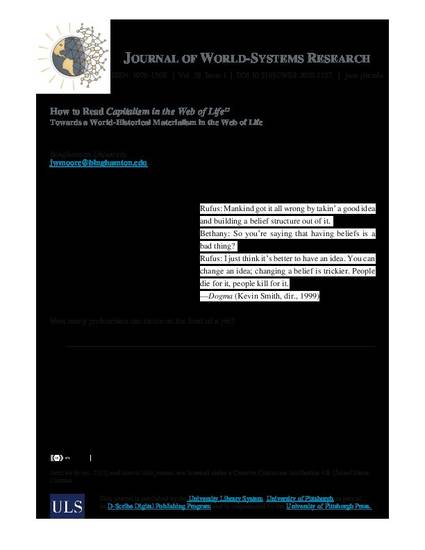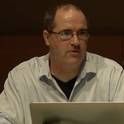
Article
How to Read Capitalism in the Web of Life: Towards a World-Historical Materialism in the Web of Life
Journal of World-Systems Research
(2022)
Abstract
My philosophical and theoretical position is impossible to miss and stated explicitly in the first pages of the Introduction. I begin Web of Life by warning of the dangers of an undifferentiated, “Green holism,” including poststructuralist theory as well as Latourian actor-network thinking. In its place, I argue for a “perspective [that] allows for the multiplication of questions that turn on the oikeios: the creative, generative, and multi-layered relation of species and environment” (Moore 2015: 4). The argument here specifically joins three luminaries of Foster’s eco-socialism: Paul Burkett’s groundbreaking work on the relational holism of Marx’s value theory (1999), and the dialectical biology of Richard Levins and Richard Lewontin (1985). Nor do I stop there. I insist on the specific and ongoing historical-geographical distinctiveness of human social relations with and within webs of life. “To say that humans are a part of nature is to highlight the specificity of humanity within the web of life—its specific forms of sociality, its capacities for collective memory and symbolic production, and much more” (Moore 2015: 6). So much for undialectical (post)humanisms and naturalisms!
Keywords
- world-ecology,
- capitalism,
- imperialism,
- environmental history,
- capitalocene,
- cheap nature,
- Marxism,
- historical materialism,
- class struggle
Disciplines
Publication Date
Spring March 15, 2022
Citation Information
Jason W. Moore. "How to Read Capitalism in the Web of Life: Towards a World-Historical Materialism in the Web of Life" Journal of World-Systems Research Vol. 28 Iss. 1 (2022) p. 153 - 168 Available at: http://works.bepress.com/jasonwmoore/8/
